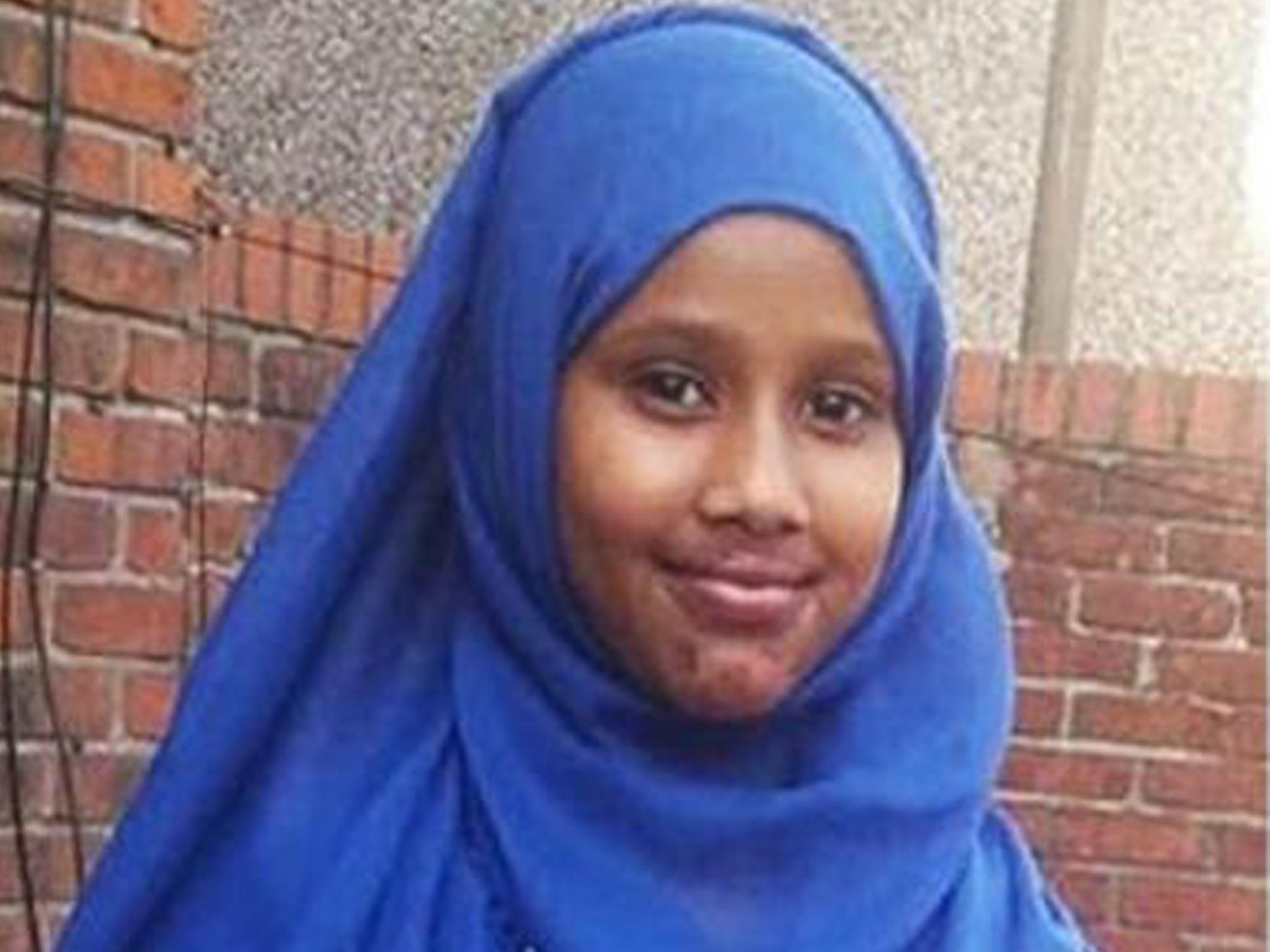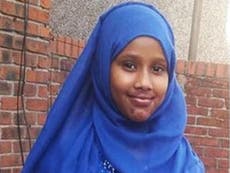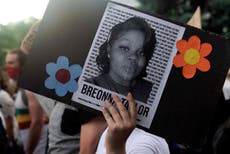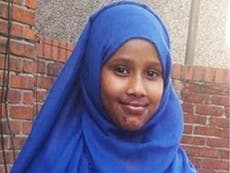A year after the death of 12-year-old Shukri Abdi, we should be shouting her name from the rooftops
On the anniversary of the day the schoolgirl’s body was found in the River Irwell, her family is still calling for answers. Discussions around Black Lives Matter have shown us how far we still have to go


Today marks a year since the day Shukri Abdi’s body was found in the River Irwell in Bury. Demonstrations have been organised in cities across the world including London and Liverpool, all the way to Los Angeles and Toronto to support the family in their pursuit of justice.
Shukri, a 12-year-old Somali girl, arrived in the UK in January 2017 as part of the UN’s vulnerable persons resettlement scheme in which only the most vulnerable individuals and families are accepted. Arriving with her four siblings, her family were placed in Bury, a town in Greater Manchester with no sizeable Somali community despite other areas like Moss Side having existing organisations and community infrastructure which would have supported their transition to the UK.
Shukri’s family have repeatedly raised the issue of bullying, saying it was out of character for her to play anywhere near the water because she could not swim. An internal investigation by Shukri’s school is said to have found they “were not aware” of any bullying and a police detective told an inquest that he believed no bullying or coercion took place.
The inquest into her death has been adjourned with no date confirmed to resume, but the incident itself has sparked other discussions about prejudice in this country’s schools.
As a former president of the National Union of Students, very few days went by in my term where I was not contacted to support students experiencing racism in college or university. I remember arriving in the UK aged 9, a daughter of refugees, and being subjected to racism in the classroom, canteen and playground. Stories of bullying like these are all too common among young black girls.
Discussions around Black Lives Matter that we’re currently having in the UK have shown us how far we have to go.
Playground racism has continued to come to the fore, with students from Wright Robinson College speaking about their experiences in school, and Labour MP Kate Osamor writing to schools to ask what actions they are taking to tackle discrimination faced by black learners. After all, it was in 1986 that 13-year-old student Ahmed Iqbal Ullah was stabbed to death in his school playground in Burnage in Manchester. And just last week, the Runnymede Trust published a report entitled Racism in Secondary Schools discussing among other things that “popular responses” to Shurki’s death “lay bare the realities of racism, Islamophobia and xenophobia in contemporary society”.
Details have emerged which point to issues with bullying, which Shukri’s mother Zamzam had complained about repeatedly, even asking the school to keep her behind at the end of the school day until she could pick her daughter up.
Following Shukri’s death, the school agreed to an internal report looking at these claims, with Shukri’s family saying none of the family members, nor other parents who had previously complained about bullying at the school, were interviewed. Instead, Shukri’s family were invited to discuss the internal report from the school at Bury police station, but because of the refusal to provide Shurki’s mother with an interpreter, they had no choice but to leave the station in protest, with Zamzam in tears.
The last few weeks have been a reminder of how exhausting it is to be a black woman in the UK. For the last few years, I have attended the United Friends and Family Commemoration. The march, which will be held on 31 October this year, is held by those who have lost their loved ones through deaths in police, prison and psychiatric contact. Together, they hear and tell story after story of their struggles as they try to secure justice for their families. This is the difficult path that Shukri’s family has embarked on, and it is one we are duty-bound to support.
Every young person deserves to have a chance of thriving in school – they shouldn’t have to worry incessantly about their safety. Parents, too, should be able to send their children to school without fear that they may not return home. Today, Shukri’s name will ring out in cities across the world – but this is by no means the end of the story.
When Shukri’s mother Zamzam was asked by the coroner if she wanted to make any comments to the court, with tears in her eyes she said she would wait “until she gets justice”. Until that day, we will continue shouting from rooftops, marching in the streets, signing petitions, lobbying MP’s and holding the system that failed her accountable.





Join our commenting forum
Join thought-provoking conversations, follow other Independent readers and see their replies